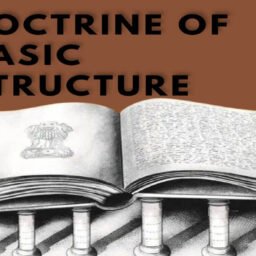Introduction
“Inside every child, there is a rainbow waiting to shine and education is the primary medium to grow and glow”
Do children still face challenges in the accessibility of education? Is it Equally Accessible to all the children? Do we face any challenges in the implementation of the right to education?
So, the first and the foremost question
What is the Education?
It is a process of acquiring knowledge, skills, belief and habits to uplift our standard of living as Nelson Mandela has rightly said education is the most powerful weapon which you can use to change the world if we talk about India it is one of the countries with a majority of youngsters but unfortunately, the illiteracy rate of India is higher than other developing countries illiteracy rate is parallelly connected in the increase of poverty, unemployment and crime rates in the country as you can see the addition of (A) in the Article 21. So, it means that the right to education was not a right at the beginning of the constitution it was inserted later.
How DID it gEt inserted inTO Indian constitution?
So, the question arises how the right to education came into the picture so firstly in part 4 of the Indian Constitution Article 45 provided free and compulsory education later in the year 1990 the first official document on right to education was prepared in Ramamurthy committee then came to the landmark decision of Supreme Court in 1993 in Mohini Jain v. State of Karnataka and Krishna JP v. state of Andhra Pradesh, where supreme court clearly stated that education is the essence of the right to life. Later, the Tapas Majumdar committee was set up to insert Article 21 a making space for the right to education as a fundamental right in the Indian Constitution finally in year 2002 by the 86th amendment of the Indian Constitution right to education (21-A) was inserted as a fundamental right under part three of Indian constitution with stated that
“The state shall provide free and compulsory education to all children of the age of 6 to fourteen years in such manner as the state may by law determine.”
After the insertion of Article 21(A), Article 45 was also amended which states that the state rural and evil to provide early childhood care and education for all children until they complete the age of 14 years.
Since children are of a very tender age, they won’t be able to exercise these rights so a new fundamental duty was added and Article 51A. It shall be the duty of every citizen. In line with Article 21, a right of children to free and compulsory education act 2009 was enacted. The important provision of this act is to provide primary education to all the children between the age group of 6 to 14 years in a formal school with essential norms and standards. This act mandates 25% reservation for disadvantaged sections of society such as scheduled caste, scheduled tribe, socially backward class differently-abled citizens.
A child can take admission only under government school or even private school?
Right to education admission can be taken in government school under the local school in aided school and even in the private school but the criteria if any child takes admission under the right to education first, they must enrol in the nearby government school local, or school established and funded by the state but other government schools. local school’s establishment funded by the state then private schools can be reserved seats under the right to education.
Education Rights Trust v. State of Karnataka (2019)
Education Rights Trust filed a petition against the State of Karnataka for making violative provisions that Students availing admission under Right to Education shall first prefer government school, local authority school or school established and funded by the state and then private school. Right to Education is a Fundamental Right and the restriction of not moving to Private School first is restrictive and should be struck down as null and void.
Karnataka High Court decided in favour of the rule of Karnataka government with a clarification that preference to private school will hamper the running of Government school hence students availing admission under RTE will be required to admit 1st in a government school, local authority school or school established and funded by the state and if there are no seats available or if such school lack basic standard of education, then private school be preferred.
FLAWS
We have failed spectacularly in the two most important sectors is Healthcare and the other in Education.
- One of the important flaws with RTE is that it focuses most effective on bodily infrastructure and measurements, now no longer on the academic effects or the excellence of training. If you may undergo the academic reviews of the nation or centre, it talks the whole thing approximately faculties with playgrounds, the document evaluates faculties primarily based totally at the study room width and top however now no longer at the excellent of training received.
- The second big mistake is that the government’s policy of promoting all children through 10th grade without proper assessment and testing is simply unwise. Although the intent was good to create a stress-free environment, the idea only made the situation worse since there are no incentives for children to learn. To learn or not to be promoted, it’s absurd. “Regulations on admitting a child to an age-appropriate class with no reference to learning levels, no examinations, and automatic promotion to the next higher class regardless of learning outcomes” is a carefully articulated environment, exactly the opposite of real life. In the real-world environment, where there is fierce competition, our children are just mercilessly crushed.
CONCLUSION
So, education is very important, and none should be deprived of it. The importance of primary education has been neglected by India since independence knowingly or unknowingly. Education makes us aware of the ethical skills of knowledge that help us make progress without educating the people that a country cannot prosper or grow, hence it is necessary to raise children for India to be a strong and strong country will. Adequate sanctions should be provided for violations of the rules. Families and communities play a vital role in making the Children’s Right to Free and Compulsory Education Act 2009 a huge success in India.
Children with mental disorders also need the basic equipment or the necessary training and the mental development plan must be implemented immediately. According to the law, existing schools were also obliged to provide basic infrastructure within three years of the prosecution. But unfortunately, it took five years. Most schools in India do not have the necessary infrastructure, but the government must take immediate action to ensure all basic school facilities such as adequate food, clean water, sanitation, library, and playground. In addition to these needs, schools must also provide adequate instruction through visual aids, globes, graphics, pictures, projects, etc.
Author(s) Name: Srija Singh (Amity University, Noida)
















